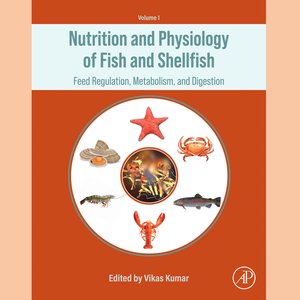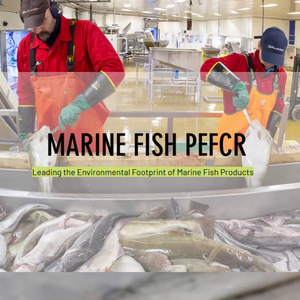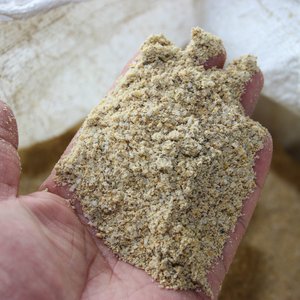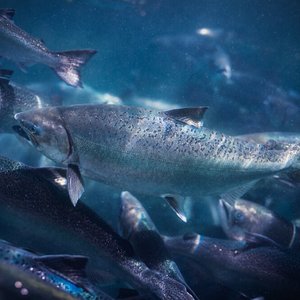Farmed salmon have heart problems
Almost half of all farmed salmon suffer from inflammation of the heart and nine out of 10 have excess epicardial fat, a fresh Master’s thesis shows.
The focus has previously been on studying infectious diseases in farmed salmon. In recent times, scientists have with greater precision been able to diagnose and measure characteristics of fish hearts and consequently more easily establish heart problems.
In autumn last year, Aamer Shehzad, a Master's student at the Norwegian University of Life Sciences, examined together with scientists from Nofima and the Norwegian School of Veterinary Science at least 2700 farmed salmon from 291 different families.
The analyses show that 42.4 percent of the fish suffer from inflammation of the heart (epicarditis).
Ninety percent had epicardial fat, of which 43.8 percent had a considerable amount of fat. This is something seldom seen in wild salmon.
"It is worrying that so many have heart problems," says Senior Scientist Ingrid Olesen at Nofima Marin.
"Studies show that salmon with heart problems can become more stressed and have a higher rate of mortality in stressful situations such as weighing, transport and vaccination."
The findings show that there are major differences between the various salmon families and that inflammation, epicardial fat and other characteristics of the hearts of salmon are hereditary.
"In some families, nearly all the salmon had discrepancies with their hearts, while in other families nearly all were healthy," says Olesen.
"This information can be taken into consideration for future breeding. By avoiding fish from families with many heart problems, we can achieve a better and more robust farmed salmon."
SalmoBreed will this autumn start to take this into consideration when selecting breeding fish in order to achieve a healthier farmed salmon.
Olsen and Professor Trygve Poppe from the Norwegian School of Veterinary Science were the academic supervisors for Aamer Shehzad's Master's project.
The study also shows that the heart of the farmed salmon has a different shape than that of wild salmon. While wild salmon have a more triangular-shaped heart, the heart of farmed salmon is often more rounded.
"These differences may be attributed to the fact that wild salmon are more athletic, swim a lot and move around a large area of sea, while farmed salmon swim around in cages and have become lazier than their fellow members of the genus," says Olesen.







